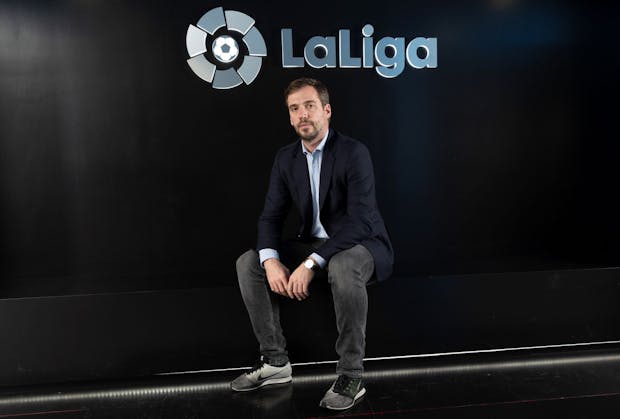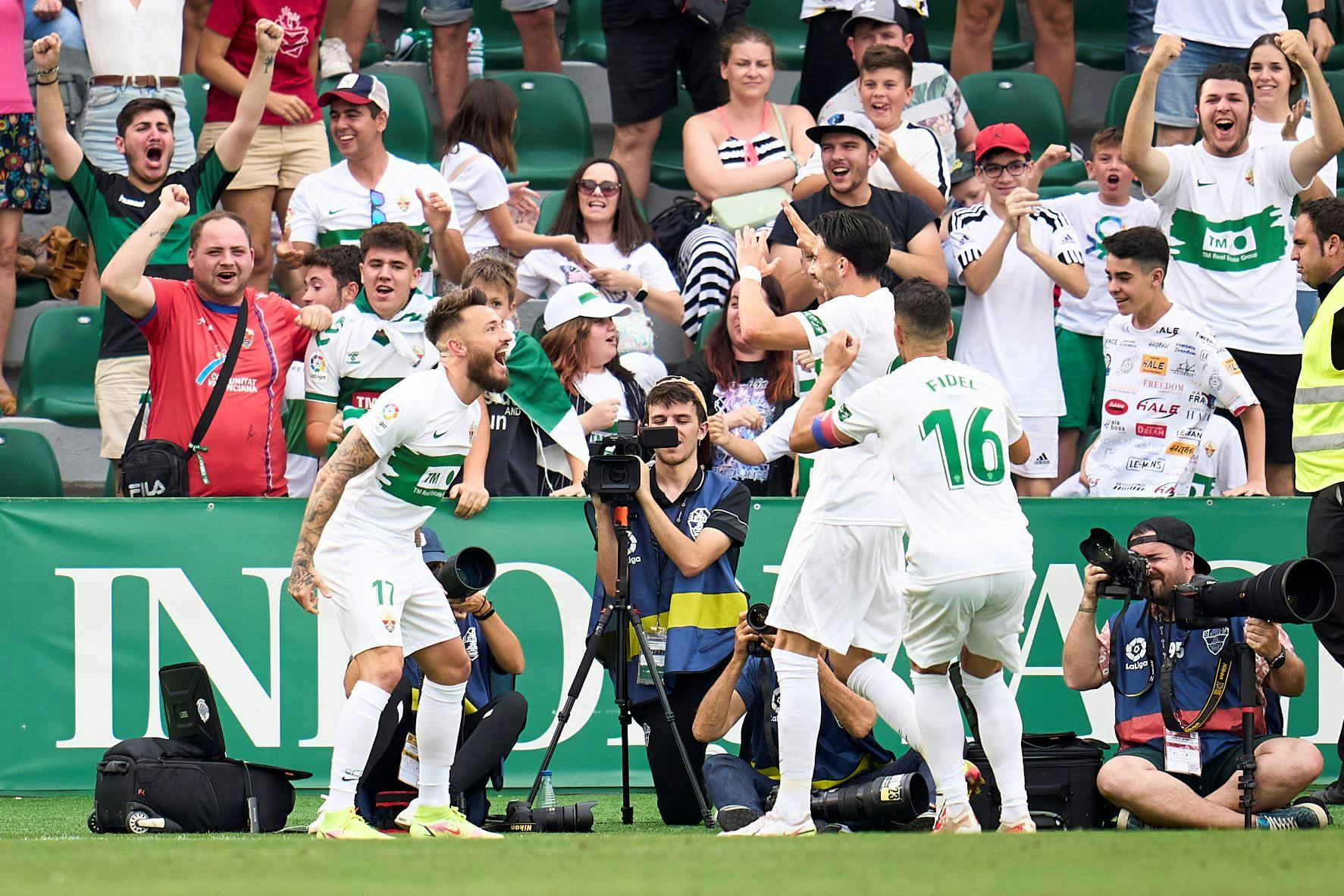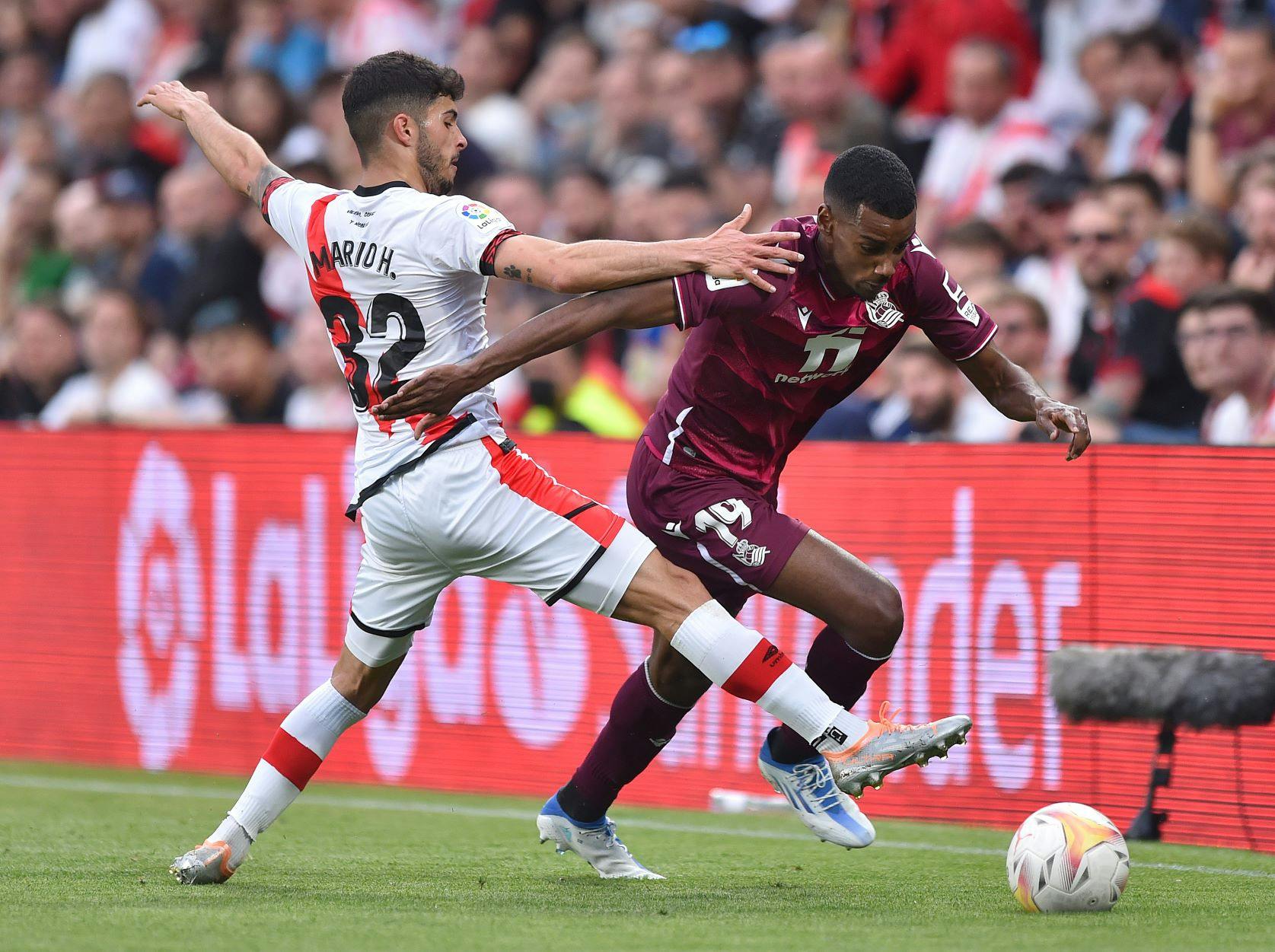
As a long-standing pillar of LaLiga’s development strategy, digital transformation has played a vital role in bringing the passion of the Spanish football league, its clubs and superstars to a wider audience than ever before in recent years.
Epitomised by the creation of LaLiga Tech – which was ultimately separated into a standalone business in 2020, allowing cutting-edge technology and data services to be commercialised through a single entity – the league has a well-earned reputation as an innovator in the digital space, given the impressive results so far.
For example, LaLiga has the most social media followers of any football competition worldwide, with over 155 million followers across 17 platforms. Its Facebook page has 29 million followers, and the second-largest demographic by volume of use on the platform is 18 to 24-year-olds. On Instagram, members of this same age group account for 40% of users, while on YouTube, they represent the most video views and the most total watch time on the platform.
Via social channels, the harder-to-reach younger audiences are therefore engaging with LaLiga. However, there is no hint of complacency with the league as it continues to explore new digital channels.
Even as recently as April, the Spanish Professional Football League launched a so-called “mini programme” on leading Chinese digital platform Alipay, providing fans in the country with new engagement opportunities through activities and exclusive content.
Fans can now access match-related information, including news about LaLiga, fixtures and standings, as well as customise their own membership cards and participate in regular draws to win official merchandise. Significantly, the mini programme gives the league the chance to connect with more than one billion users on the platform.
The project marked just the latest initiative by LaLiga to broaden and strengthen its fan base worldwide – and content is playing a key role in a long-term approach that is having a multi-pronged impact.
Dynamic strategy
“It is an evolutionary process based on a dynamic content strategy, which involves always trying to stay on top of the latest trends and offering LaLiga fans what they expect from us,” LaLiga’s digital strategy director, Alfredo Bermejo, says.
“As part of LaLiga’s digital strategy, one of our major goals is to establish a strong relationship with the fans. Firstly, we focus on building and expanding our community and then we begin a conversation with those fans, creating a connection with them and, ultimately, obtaining a return on that investment. We have gone from an indirect relationship with the fans to one that is direct.
“And we achieve all that by implementing a content strategy that connects with fans around the world, adds value and generates interesting content that informs and entertains them. That way we gather knowledge about the fans regarding the content they like the most and methods for converting them into heavy LaLiga users.”
Understanding audiences
LaLiga Global Network, which launched more than five years ago, has played a prominent role in the organisation’s digital growth, spanning 90 countries, including 11 international offices and joint ventures in North America and China.
 The network has helped LaLiga to better understand the markets in which they are seeking to engage new and existing followers, leading to the provision of regular content across 17 different social media platforms.
The network has helped LaLiga to better understand the markets in which they are seeking to engage new and existing followers, leading to the provision of regular content across 17 different social media platforms.
“We have an expert content creation team working at LaLiga made up of people of various different nationalities. In addition, we have our local offices based in the different territories and our network of LaLiga Global Network delegates,” Bermejo explains.
“Rather than translating the content we create for Spain, we aim to adapt our content to each market. We work closely with our delegates to identify trends, content and formats that are specific to each territory, working on that content with our team and establishing a tailored content plan for each region.”
‘Glocal’ strategy
This so-called ‘glocal’ strategy has allowed LaLiga to become a global brand whilst connecting with fans across the world.
“We have a hallmark identity that is recognised worldwide as a result of the global content we create across all areas of our activity,” he adds. “We also, however, create content that is tailored to each individual market and platform, which works to establish closer ties with each of our fans. We are currently able to regularly generate content in 20 languages and maintain a presence on platforms around the world.”
A consistent theme in LaLiga’s adaptable global digital engagement strategy is to cater for different types of fans who will engage with the competition in different ways. For example, whilst being informative is a vital component, engaging followers on a deeper, more personal level will bring individuals closer to the action.
With that in mind, insights-driven content plays a crucial role in lifting the lid on the people, clubs and inside stories that fuel the passion of LaLiga.
As part of this, the LaLiga Content Hub provides a steady flow of organic content that can be shared by international media platforms – from video interviews and infographics to long-form articles and timeless features, plus much more.
Nutritious and delicious content
“Understanding your audience and being able to create compelling content across all the major platforms is key,” Bermejo adds. “Our strategy focuses on two types of content: nutritious and delicious.
“Firstly, we supply interesting information and data about the LaLiga competition, which we then combine with stories and behind-the-scenes content. And we don’t stop there. In recent years we have been working on different content plans that seek to engage with the younger generations. Our goal is to bring LaLiga to new generations of users who consume football in a different way.
“The digital revolution has led to an ever greater variety of content and formats that impact audiences across a range of platforms. Such capability is not only generated by content category or platform, but also on the amount of time the user spends on leisure consumption. Users are now connected 24 hours a day, choosing how to spend their leisure time from the range of different entertainment options on offer.”
Engaging with fans on their terms via digital platforms has become an increasing challenge for every proactive sports organisation in recent years.
This shift has been super-charged by the Covid-19 pandemic and, across all industries, the digitisation of customer interactions globally essentially leapt by the equivalent of three years in the space of just eight months from December 2019 to July 2020, according to a report by McKinsey & Company.
Adapting needs
LaLiga is well aware of such a trend, which was already in motion before the pandemic, and is now determined to provide fans with the content they crave in a format and via a platform that works for them.
 According to Bermejo, developing a content strategy that is “adapted to the needs of each audience” is therefore essential, and this also has knock-on benefits in terms of gaining a better understanding of the followers through data derived via digital touchpoints.
According to Bermejo, developing a content strategy that is “adapted to the needs of each audience” is therefore essential, and this also has knock-on benefits in terms of gaining a better understanding of the followers through data derived via digital touchpoints.
“Knowing our audience better and being closer to them is the key pillar for us,” he adds. “In recent years, we’ve been working on different content plans to start collaborating with streamers and experimenting with new forms of content consumption.”
As an example of this, Bermejo cites the development of eLaLiga Santander, which emerged in the 2017-18 season, in partnership with Electronic Arts. The initiative was created with a view to LaLiga making inroads into the world of competitive gaming and getting closer to an audience that consumes football differently.
Following the success and positive experiences with eLaLiga Santander, LaLiga decided to go one step further and became the first European sports league to join Twitch, an interactive streaming platform favoured by gamers.
Since then, the competition has experienced meteoric growth, expanding to feature 38 clubs, with all matches broadcast on Twitch, including four streamed simultaneously via the platform’s Squad Stream tool.
TikTok landmark
Even on mainstream platforms, though, LaLiga is keen to innovate. In April, following a landmark agreement between Mediapro, LaLiga and TikTok, free-to-air channel Gol broadcast live coverage of Real Sociedad’s clash with Real Betis on the social media platform.
The game, which was shown in a 9:16 vertical format, was the first match from any major European football league to receive such treatment. The momentous broadcast attracted 733,000 views, 68,000 chat comments, 7,000 shares and 1.2 million likes.
“This season, we took a big step forward in our involvement with TikTok, a platform whose audience predominantly consists of young people,” Bermejo says. “Our follower numbers grew by 4.5 million in 2021-22, owing to the compelling and customised content we provided, which often featured influencers. For instance, we launched a programme called Play LaLiga which is broadcast exclusively on TikTok and in a vertical format and viewing figures thus far have been impressive.”
According to the latest figures by Data Reportal, 43.3% of TikTok’s audience who are over the age of 18 are less than 25 years old. When it is considered that TikTok surpassed one billion users last September, the scale of the opportunity to reach younger people on the platform is clear.
“Generation Z’s trends and tastes are constantly changing and evolving; and so it is imperative that we know how to react and adapt to such changes,” Bermejo says. “Being able to create interesting content which is adapted to their consumption habits is essential if we are to win over fans from this generation and capture their attention during their leisure time.
“This is why we are always open to experimenting with new formats and exploring any possibilities that we have before us; we are prepared and alert to seize any opportunity that arises.”
Boost LaLiga
In December, the LaLiga general assembly ratified LaLiga Impulso (Boost LaLiga) – a strategic agreement with global investment fund CVC to promote the global growth of LaLiga and its clubs.
Clubs that endorsed the project are able to tap into €2bn (£1.7bn/$2.1bn) of funding to strengthen various strands of infrastructure and international development, including the creation of content plans for digital platforms and social media.
LaLiga president Javier Tebas said at the time that the project would allow the organisation to continue its evolution into “a global digital entertainment company, improving the competition and enhancing the fan experience”.
Indeed, by leading from the front in creating a culture that embraces digital innovation, LaLiga’s influence appears to have had a tangible impact on a club-by-club basis.
Celta de Vigo, Elche CF and RCD Mallorca are just three from the top tier to have utilised LaLiga Impulso to invest in prominent digital initiatives.
Then there is Real Sociedad, which featured in the game-changing TikTok broadcast. From new platforms and mobile apps packed full of features like digital member cards to the club’s Sports Thinker Smart Stadium programme, which pilots various technologies to enhance the fan experience inside and outside the stadium, Real Sociedad appears to have fully embraced the space.
LaLiga lift-off
For LaLiga, approaches such as these by clubs illustrate a broader, growing desire to explore new opportunities.
“One of the LaLiga Digital Strategy Department’s main objectives is to contribute towards and help with increasing the brand and digital presence of all our clubs on an ongoing basis,” Bermejo explains.
“We work closely with all of them, organising workshops and sharing best practices. We also run projects, such as that for the centralisation of the social media management service in China or data-driven marketing strategies, through which we provide support for clubs.”
The available knowhow from LaLiga’s projects can be crucial for clubs seeking to negotiate a complex and unfamiliar landscape.
“Any of the clubs can sign up to these projects and receive support from LaLiga to help them grow,” Bermejo adds. “By setting up and centralising these projects, LaLiga aims to maximise efficiency and optimise costs across the board, as well as give clubs the opportunity to implement new actions that would be difficult for them to accomplish on their own.”